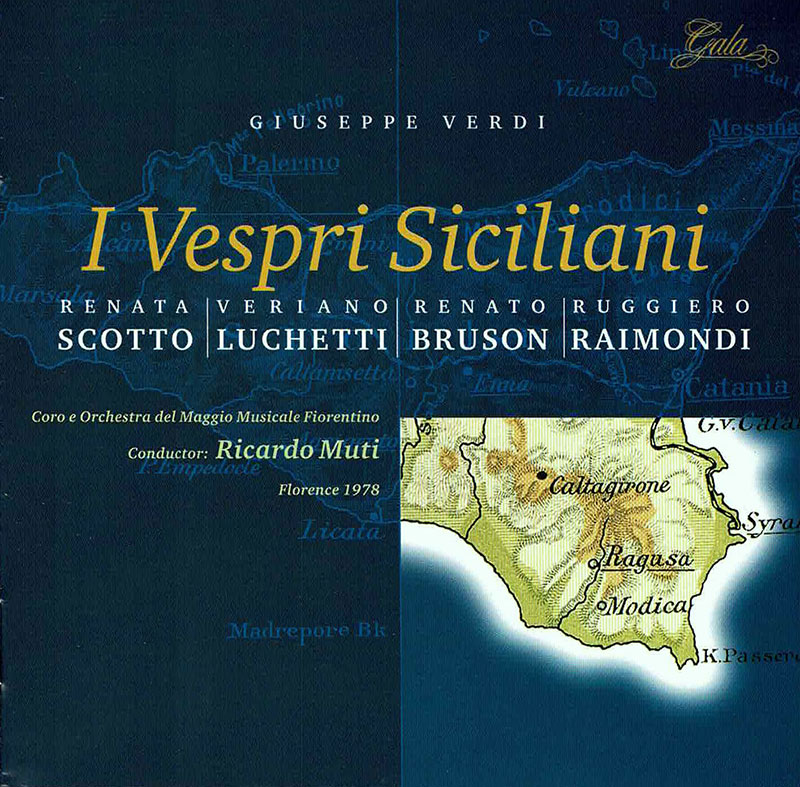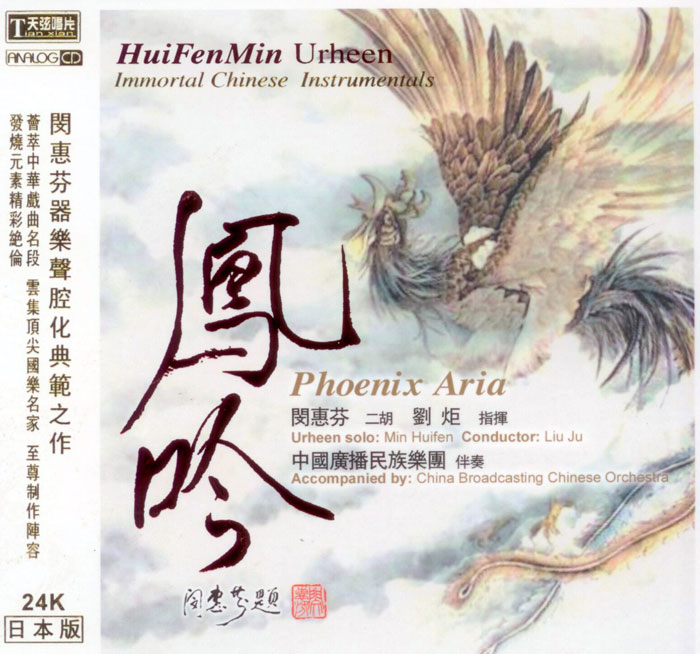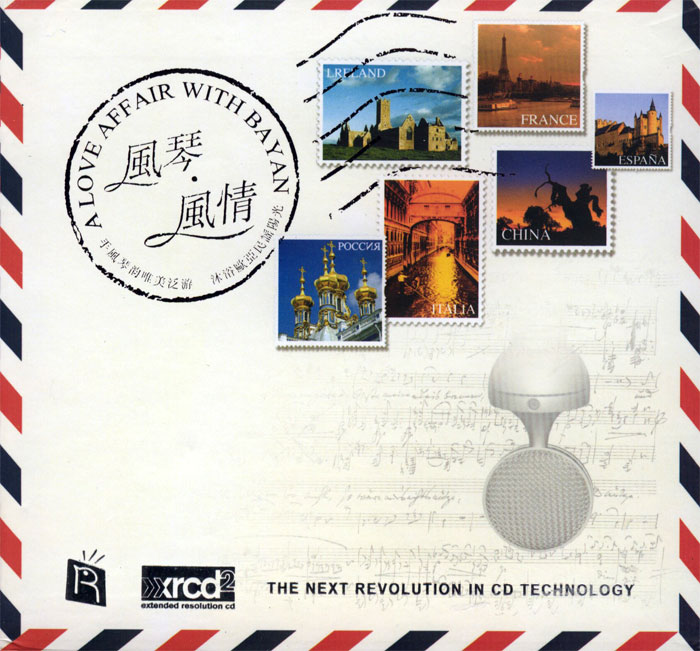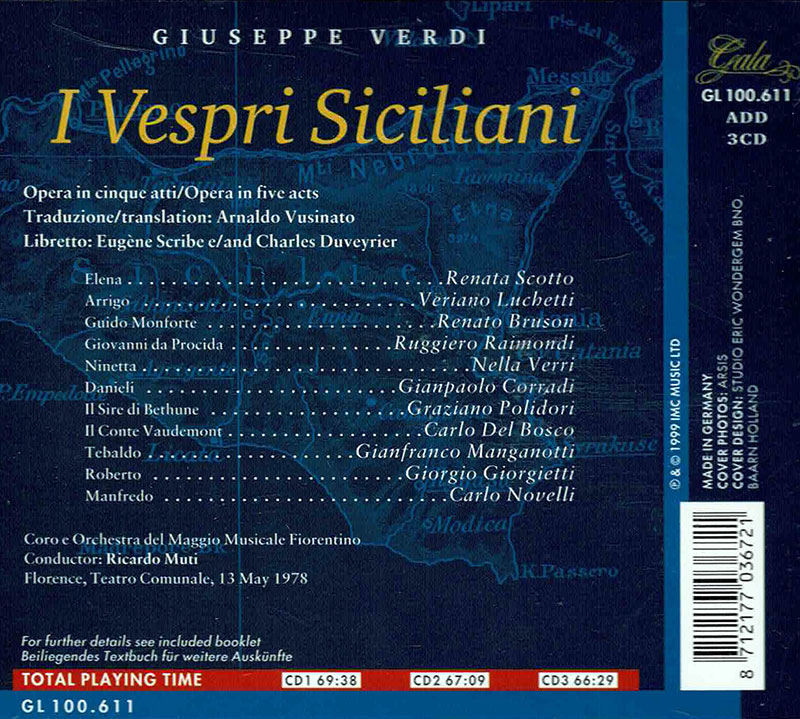Logowanie
Dlaczego wszystkjie inne nie brzmią tak jak te?
SpeakersCorner - OSTATNIE!!!!
RAVEL, DEBUSSY, Paul Paray, Detroit Symphony Orchestra
Prelude a l'Apres-midi d'un faune / Petite Suite / Valses nobles et sentimentales / Le Tombeau de Couperin
Samozapłon gwarantowany - Himalaje sztuki audiofilskiej
PROKOFIEV, Stanislaw Skrowaczewski, Minneapolis Symphony Orchestra
Romeo and Juliet
Stanisław Skrowaczewski,
✟ 22-02-2017
BARTOK, Antal Dorati, Philharmonia Hungarica
Dance Suite / Two Portraits / Two Excerpts From 'Mikrokosmos'
Samozapłon gwarantowany - Himalaje sztuki audiofilskiej
ENESCU, LISZT, Antal Dorati, The London Symphony Orchestra
Two Roumanian Rhapsodies / Hungarian Rhapsody Nos. 2 & 3
Samozapłon gwarantowany - Himalaje sztuki audiofilskiej
Winylowy niezbędnik
ClearAudio
Cartridge Alignment Gauge - uniwersalny przyrząd do ustawiania geometrii wkładki i ramienia
Jedyny na rynku, tak wszechstronny i właściwy do każdego typu gramofonu!
ClearAudio
Harmo-nicer - nie tylko mata gramofonowa
Najlepsze rozwiązania leżą tuż obok
IDEALNA MATA ANTYPOŚLIZGOWA I ANTYWIBRACYJNA.
Wzorcowe
Carmen Gomes
Celebrating the art and spirit of music - vol. 5 - Reference Songs
- CHCECIE TO WIERZCIE, CHCECIE - NIE WIERZCIE, ALE TO NIE JEST ZŁUDZENIE!!!
Petra Rosa, Eddie C.
Celebrating the art and spirit of music - vol. 3 - Pure
warm sophisticated voice...
SAMPLER - STS DIGITAL, Gregor Hamilton
Celebrating the art and spirit of music - vol. 2 - Love songs from Gregor Hamilton
...jak opanować serca bicie?...
SAMPLER - STS DIGITAL
Celebrating the art and spirit of music - vol. 1 - Leonardo Amuedo
Największy romans sopranu z głębokim basem... wiosennym
Lils Mackintosh
Celebrating the art and spirit of music - vol. 4 - A Tribute to Billie Holiday
Uczennica godna swej Mistrzyni
VERDI, Renata Scotto, Veriano Luchetti, Renato Bruson, Ruggero Raimondi, Orchestra e coro del Maggio Musicale Fiorentino, Riccardo Muti
I Vespri Siciliani

pekinman 5.0 out of 5 starsThoroughly enjoyable live recording of a greatly under-rated opera. January 31, 2016 I vespri Siciliani definitely qualifies as the most unfairly maligned and dismissed opera in Verdi's entire canon. Since "discovering" James Levine's RCA recording this work has catapulted to the top six favorites of mine in Verdi's entire output. It is impossible to not compare this "live" performance of Muti's from the 1978 Florentine May Festival, but the minuses of a live event are clearly over-ridden by the pluses. This is a long opera. It seems longer than the five act 'Modena' version of Don Carlo but it isn't. The problem with Vespri is the ballet. There is some fine music in it but it goes on and on and on. Levine can keep things moving along in his studio recording but Muti has real dancers to contend with who are trying to act out a story. The result is... tedium. But this is only temporary as Muti knows that opera audiences are usually lukewarm about ballets, except in Paris, and he gins up the energy and oomph whenever he can. Still, the sense of relief is palpable when the thing ends and the chorus launches into that great Can-Can to wake everyone up. Aside from that this is a wonderful performance of I vespri Siciliani and a very complementary adjunct to Levine's RCA studio version. On balance the casts are comparable. Levine has the superior Arrigo in Plácido Domingo only in that he is in a protected studio environment and has time off to sleep and come in the next day for a single session of his big aria in Act IV. Veriano Luchetti has a live festival performance to get through and by Act IV he's a little tired, but he manages with a slightly quicker tempo and great sympathetic accompaniment from Muti, though Luchetti almost cracks on the last high note but he doesn't. The audience responds with a lukewarm reception which I thought was nasty of them. Luchetti is a fine Arrigo. He sounds like Domingo but lacks the last ounce of ... something ... I don't know. He's a little stiff, but the voice is handsome and powerful and he recovers from his Act IV let-down and ends guns blazing. Muti has a great Elena in Renata Scotto. Levine's Martina Arroyo is also extremely good, but Scotto is astonishing. Her commitment to the characterization is red hot and her voice is in super condition. She flings off the coloratura like nobodies business and her high pianissimo singing in her chromatic aria in Act IV is breath-taking. She began her career as a coloratura and became a true dramatic spinto. A great artist! She is tired by the time the 'Bolero' crops up but she still delivers a fine performance. I don't think I've ever enjoyed a Scotto performance as much as this one. As for Montfortes Levine's Sherrill Milnes has the advantage of the studio but Renato Bruson has the advantage of 'temperament'. They both sing beautifully but Bruson is blistering in his emotional impact and the audience goes nuts for him. A little too nuts actually, to the point of being tiresome after the end of his big aria in Act III when he has discovered that Arrigo is his long lost son. I wonder how much he payed the claque to carry on like that? But he is great and deserved every bravo. Ruggero Raimondi is one of those amazing singers who never seems to put a vocal chord wrong. He is the Procida here and for Levine. I like the Levine version better because his enunciation is more clearly heard, but the theatrical event fires him up much more than the coolness of a London studio setting. Muti's supporting cast is not up to par with Levine's but that is to be expected when he had his best young singers, all soon to be stars, singing the little parts for RCA. Muti keeps his orchestra in fairly good order. They are a little ragged at the start but he whips them into shape quickly. In a way I prefer this kind of rough and tumble Verdi played by something less than the Vienna Philharmonic or even the Metropolitan Opera Orchestra. I love the live venue in Florence. Everyone was loving this opera and it is infectious. However, it is a crying shame Muti couldn't have taken Scotto, Luchetti, Bruson and Raimondi into EMI's studio with the Philharmonia of London and the Ambrosian Opera Chorus. This is the other Vespri you will need in your collection if you love this opera. I haven't heard Muti's live performance (on EMI) from Milan. I am not at all interested in Chris Merritt singing Arrigo, and Cheryl Studer is no Scotto or Arroyo, however finely she fakes being a spinto. CRITIC REVIEWS: "Renata Scotto's long and successful operatic career was marked by a rare combination of dramatic intensity and vocal flexibility, which allowed her to traverse a wide variety of styles. She believed strongly in the theatrical elements of performing and always focused her energies on the meaning of a text. She also felt much of the standard verismo performing tradition to be exaggerated and vulgar, and strove to keep her performances as close to the composer's marked intentions as possible, especially with respect to subtleties of dynamics. Many speak of her as the 'last of the divas'. She began vocal studies when she was 14, and moved to Milan when she was 16. In 1952, when she was just 19, she made her debut as Violetta (LA TRAVIATA) at the Teatro Nuovo, followed by her La Scala debut as Walter in LA WALLY. However, only a few years later she had a vocal crisis, losing most of her upper range; she now credits her recovery to Alfredo Kraus (himself renowned for a solid technique and vocal longevity), who introduced her to his teacher, Mercedes Llopart. After completely restudying her technique, she re-began her career as a coloratura, making her London debut at the Stoll Theater as Adina in L'ELISIR D'AMORE. She returned to La Scala, and in 1957, replaced Maria Callas (whom she had greatly admired) as Amina in LA SONNAMBULA. In 1960, she debuted at the Chicago Opera as Mimi (LA BOHEME), followed by her Covent Garden debut in 1962 as Puccini's Cio-Cio san (MADAMA BUTTERFLY). Her Metropolitan Opera debut was in 1965 was also as Butterfly; during the next two decades, Scotto was one of their major stars, appearing in several telecasts. She began to add the heavier roles to her repertoire again, including Verdi's Lady Macbeth, which was to become a signature role, as well as verismo parts such as Fedora, La Gioconda, Francesca in Zandonai's FRANCESCA DA RIMINI and Maddalena in ANDREA CHENIER. In all of these roles she was applauded for her committed acting and stylistic fluency." - Anne Feeney, allmusic.com "Bruson was one of the foremost bel canto and Verdi baritones of his generation, and while this side of his artistry is lesser-known in the United States, he was also an accomplished song performer, specializing again in Romantic-era Italian works. He frequently championed the songs of Tosti, and was named an honorary citizen of Cortona, Tosti's home city, in recognition of this. While his Verdi roles are perhaps his best-known, especially Macbeth, Rigoletto, Renato (UN BALLO IN MASCHERA), and Simon Boccanegra, he sang in no fewer than seventeen Donizetti operas during the 1970s and 1980s, just ahead of the crest of a great resurgence of interest in lesser-known nineteenth-century works. He made his opera debut as the Conte di Luna in IL TROVATORE at Spoleto in 1961. He appeared at the Met for the first time in 1969, as Enrico in LUCIA DI LAMMERMOOR, and made his La Scala debut in LINDA DI CHAMONIX in 1972. In 1973, he made his Chicago Lyric Opera debut as Renato in UN BALLO IN MASCHERA, and in 1975 he made his Covent Garden debut in the same role, substituting for Piero Cappuccilli. His Vienna State Opera debut was in 1978, as Verdi's Macbeth. He sang with Riccardo Muti for the first time in 1970, and over the years became an adherent of Muti's insistence on singing come scritto, without singer-interpolated high notes, believing that this focuses attention on the music and drama rather than the singer. His RIGOLETTO on Philips captures one of his major roles quite well, and among his many Tosti recordings on Nuova Era, 'Romanze su Testi Italiani' is one of the strongest." - Anne Feeney, allmusic.com "Bruson was the quintessential Verdi baritone in the second half of the last century. A Verdi baritone not as it was understood (or rather, misunderstood) in the 1950's and 60's, but a Verdi baritone as understood and desired by the composer himself." - Christian Springer Renata Scotto; Veriano Luchetti; Renato Bruson; Ruggiero Raimondi; Nella Verri; Cianpaolo Corradi; Graziano Polidori; Carlo Del Bosco; etc.; Coro e Orchestra del Maggio Musicale Fiorentino Ricard Muti; Florence, Teatro Comunale, 13 May 1978

























